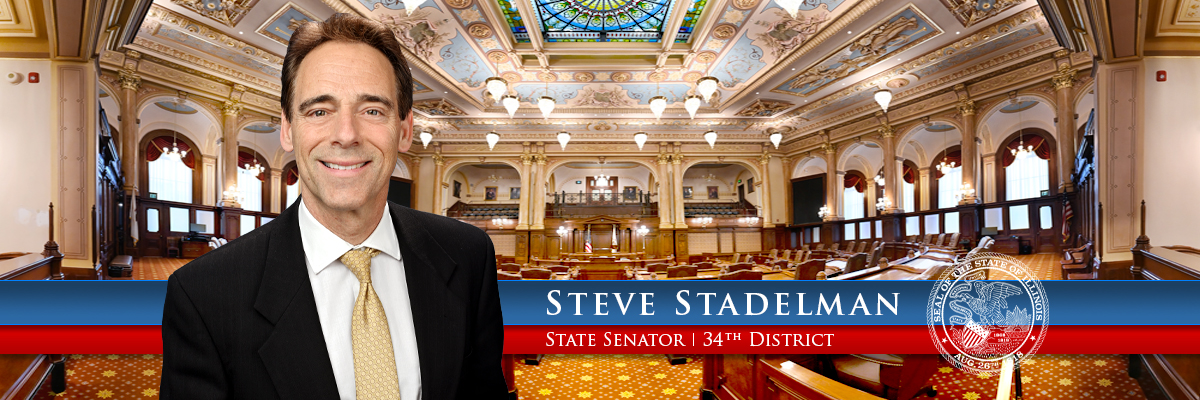The Rising Cost of State Budget Chaos
As Illinois nears the two-year mark without a budget, the impact of the political stalemate becomes more obvious and far-reaching with each passing day.
Domestic violence shelters
For many abused women, domestic violence shelters are the last refuge from which they can begin to rebuild their lives. Those shelters are now on the verge of closure due to the state’s ongoing budget impasse. In recent Senate hearings, experts have testified that Illinois' budget gridlock puts the safety and well-being of abuse victims in danger.
"Approximately 40,000 fewer Illinois students received prevention education programs last year," said Polly Poskin, executive director of the Illinois Coalition Against Sexual Assault. "Rape victims are hurt by the impasse as waiting lists for crucial counseling and advocacy services expand."
HIV/AIDS treatment, cancer screenings
During a recent Senate Appropriations I Committee hearing, the Illinois Department of Public Health came under fire for proposing spending reductions that would disproportionately affect minority communities including cuts to HIV/AIDS treatment and screenings for prostate, cervical and breast cancer. IDPH Direcotr Nirav Shah testified on possible ways to close a $5 billion gap in Rauner's unbalanced budget and took criticism for staging an event to celebrate National Minority Health Month while pushing service cuts that would most hurt minorities.
Colleges and universities
Northeastern Illinois University has announced it will cut three days of classes to cut costs, a direct response to the state's failure to produce a budget that funds higher education. Northeastern is no different than schools across Illinois that are issuing staff furloughs, laying off faculty and losing students to other states. Northeastern's decision to cancel classes comes after the Chicago campus furloughed employees who typically work during spring break and let others go altogether.
Stadelman speaks candidly on budget impasse
 At three Town Hall meetings in a week, Senator Steve Stadelman told citizens he fears deep political divisions in Springfield will prevent Illinois from passing a budget until after the 2018 election for governor, when the state's backlog of bills will approach $24 billion.
At three Town Hall meetings in a week, Senator Steve Stadelman told citizens he fears deep political divisions in Springfield will prevent Illinois from passing a budget until after the 2018 election for governor, when the state's backlog of bills will approach $24 billion.
Stadelman explained to two audiences in Rockford and a third in Machesney Park that 90 percent of state spending is on auto pilot through court orders, contractual obligations and special legislation to keep public schools open. With fallout confined to the remaining 10 percent of the budget, there hasn't been sufficient pressure to break the two-year long impasse. Higher education and social services such as Meals on Wheels for seniors, after-school programs for at-risk teens and domestic violence shelters are going unfunded or underfunded.
"When you deal with ideology and 'my way or the highway,' nothing gets accomplished in government," Stadelman said Tuesday evening during the third gathering at the Rockford Public Library East Branch. "What's happening now isn't good for anybody, no matter what your political leanings are. The negative headlines don't make Illinois an attractive place to locate businesses, which prevents us from growing the economy and creating jobs."
Stadelman said he had high hopes for a bi-partisan Senate compromise, which incorporated some of Rauner's self-titled "turnaround agenda." But the compromise collapsed after Rauner called off Republicans as they were about to approve the most critical parts of the multi-bill deal.
Although Stadelman isn't opposed to some of Rauner proposals, several -- such as property tax relief, independent political mapping and term limits -- have "zero impact on the state budget." He also questioned why Rauner has avoided using the line-item veto to amend budgets sent to him previously by the General Assembly, rather than issue a blanket rejection..
"The governor has this amazing tool that he chooses not to use," Stadelman said. "Why? Because as soon as you mention specific cuts in the budget, people get upset."
Citizens asked about issues ranging from restoring passenger rail service to Chicago and fully legalizing marijuana to pension reform and gun legislation, with Stadelman drawing the biggest applause for his strong opposition to any attempts to limit voting rights in Illinois.
Elected in November 2016 to a second term, Stadelman also discussed legislation that is working its way through the General Assembly, despite the budget gridlock, including legislation he passed in the Senate to let pharmacists to refill prescriptions without doctor authorization if abruptly discontinuing a medication could cause medical harm. Stadelman introduced Senate Bill 1790, now pending in the Illinois House, after his son, a Type 1 diabetic, ran out of insulin and needles while on family vacation at a time when his doctor could not be reached.



